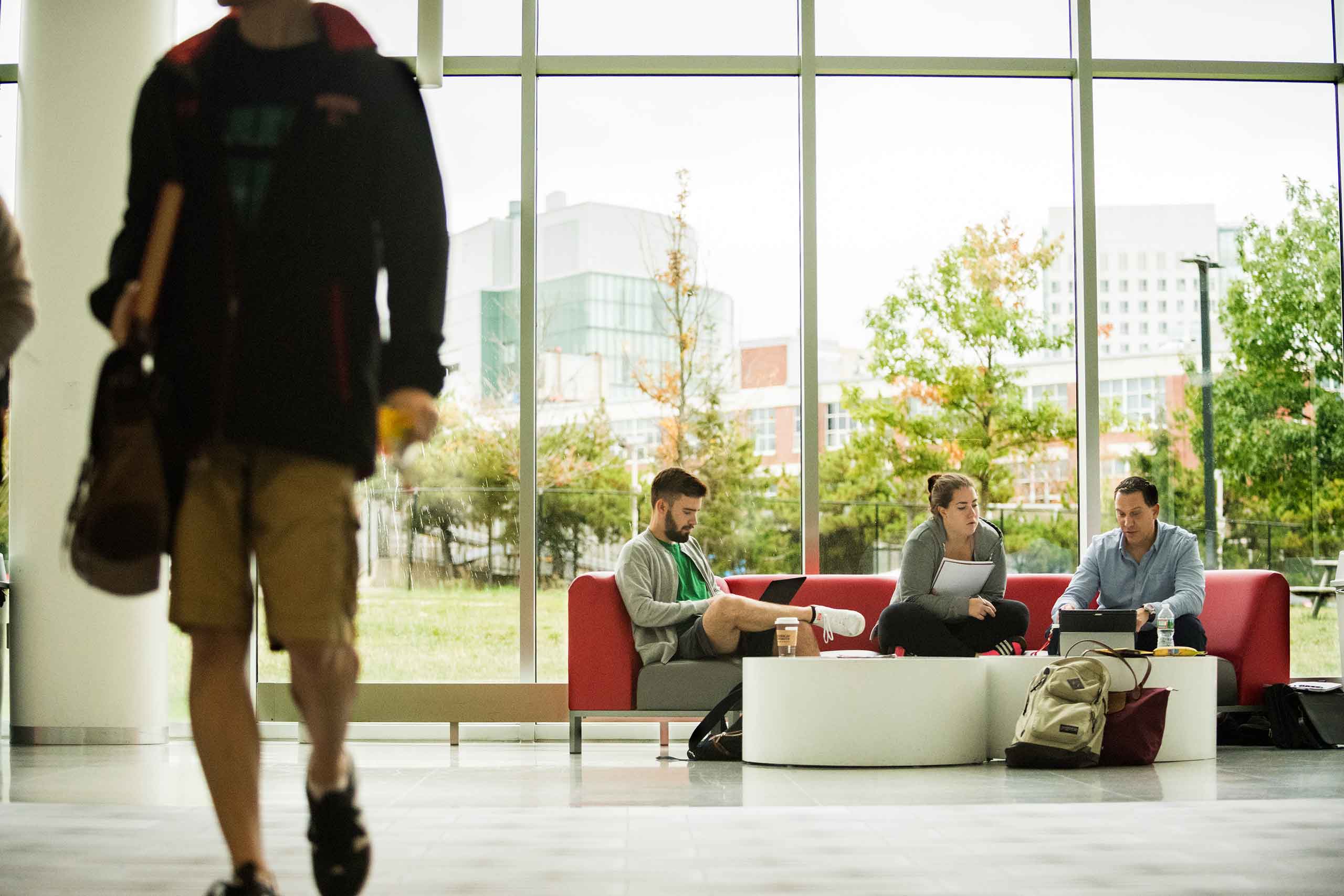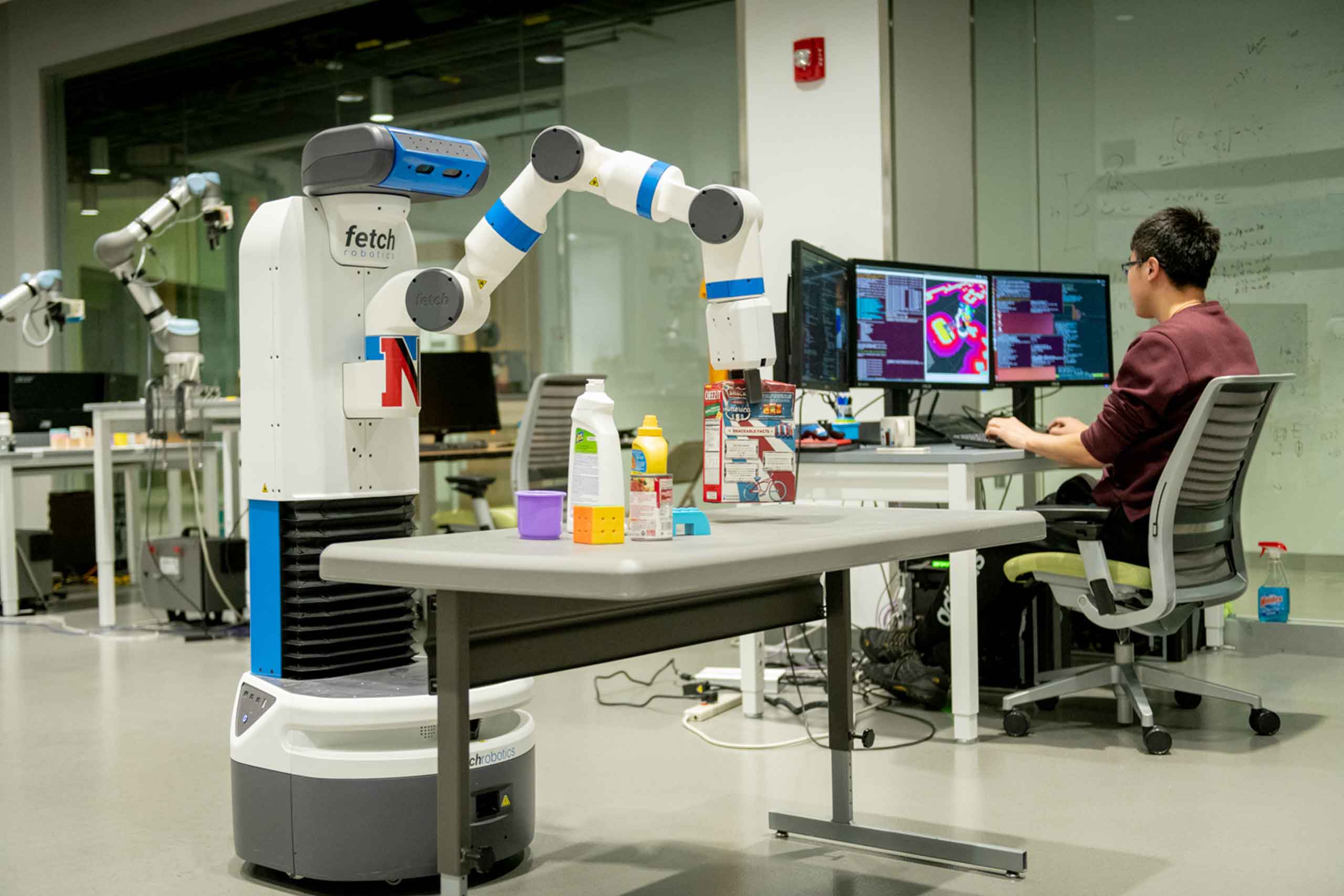

Narrative-Based Training Simulations Using Theory of Mind

Mon 06.13.16

Narrative-Based Training Simulations Using Theory of Mind
Mon 06.13.16



Mon 06.13.16

Mon 06.13.16



Mon 06.13.16

Mon 06.13.16
This project aims to investigate the development of procedural narrative systems using crowd-sourcing methods by creating a framework for simulation-based training, which supports a learner’s exploration and replay, and exercise theory of mind skills in order to deliver the full promise of social skills training.
The term Theory of Mind (ToM) refers to the human capacity to use beliefs about the mental processes and states of others. In order to train social skills, there has been a rapid growth in narrative-based simulations that allow learners to role-play social interactions. However, the design of these systems often constrains the learner’s ability to explore different behaviors and their consequences. Attempts to support more generative experiences face a combinatorial explosion of alternative paths through the interaction, presenting an overwhelming challenge for developers to create content for all the alternatives. Rather, training systems are often designed around exercising specific behaviors in specific situations, hampering the learning of more general skills in using ToM. This research seeks to solve this problem through three contributions: (1) a new model for conceptualizing narrative and role-play experiences that addresses generativity, (2) new methods that facilitate content creation for those generative experiences, and (3) an approach that embeds theory of mind training in the experience to allow for better learning outcomes. This research is applicable to complex social skill training across a range of situations: in schools, communities, the military, police, homeland security, and ethnic conflict.
The research begins with a paradigm shift that re-conceptualizes social skills simulation as a learner rehearsing a role instead of performing a role. This shift will exploit Stanislavsky’s Active Analysis (AA), a performance rehearsal technique that explicitly exercises Theory of Mind skills. Further, AA’s decomposition into short rehearsal scenes can break the combinatorial explosion over long narrative arcs that exacerbates content creation for social training systems. The research will then explore using behavior fitting and machine learning techniques on crowd-sourced data as way to semi-automate the development of multi-agent simulations for social training. The research will assess quantitatively and qualitatively the ability of this approach to (a) provide experiences that support exploration and foster ToM use and (b) support acquiring crowd-sourced data that can be used to craft those experiences using automatic methods.
This project is unique in combining cutting-edge work in modeling theory of mind, interactive environments, performance rehearsal, and crowd sourcing. The multidisciplinary collaboration will enable development of a methodology for creating interactive experiences that pushes the boundaries of the current state of the art in social skill training. Reliance on crowd sourcing provides an additional benefit of being able to elicit culturally specific behavior patterns by selecting the relevant crowd, allowing for both culture-specific and cross-cultural training content.
This project aims to investigate the development of procedural narrative systems using crowd-sourcing methods by creating a framework for simulation-based training, which supports a learner’s exploration and replay, and exercise theory of mind skills in order to deliver the full promise of social skills training.
The term Theory of Mind (ToM) refers to the human capacity to use beliefs about the mental processes and states of others. In order to train social skills, there has been a rapid growth in narrative-based simulations that allow learners to role-play social interactions. However, the design of these systems often constrains the learner’s ability to explore different behaviors and their consequences. Attempts to support more generative experiences face a combinatorial explosion of alternative paths through the interaction, presenting an overwhelming challenge for developers to create content for all the alternatives. Rather, training systems are often designed around exercising specific behaviors in specific situations, hampering the learning of more general skills in using ToM. This research seeks to solve this problem through three contributions: (1) a new model for conceptualizing narrative and role-play experiences that addresses generativity, (2) new methods that facilitate content creation for those generative experiences, and (3) an approach that embeds theory of mind training in the experience to allow for better learning outcomes. This research is applicable to complex social skill training across a range of situations: in schools, communities, the military, police, homeland security, and ethnic conflict.
The research begins with a paradigm shift that re-conceptualizes social skills simulation as a learner rehearsing a role instead of performing a role. This shift will exploit Stanislavsky’s Active Analysis (AA), a performance rehearsal technique that explicitly exercises Theory of Mind skills. Further, AA’s decomposition into short rehearsal scenes can break the combinatorial explosion over long narrative arcs that exacerbates content creation for social training systems. The research will then explore using behavior fitting and machine learning techniques on crowd-sourced data as way to semi-automate the development of multi-agent simulations for social training. The research will assess quantitatively and qualitatively the ability of this approach to (a) provide experiences that support exploration and foster ToM use and (b) support acquiring crowd-sourced data that can be used to craft those experiences using automatic methods.
This project is unique in combining cutting-edge work in modeling theory of mind, interactive environments, performance rehearsal, and crowd sourcing. The multidisciplinary collaboration will enable development of a methodology for creating interactive experiences that pushes the boundaries of the current state of the art in social skill training. Reliance on crowd sourcing provides an additional benefit of being able to elicit culturally specific behavior patterns by selecting the relevant crowd, allowing for both culture-specific and cross-cultural training content.











